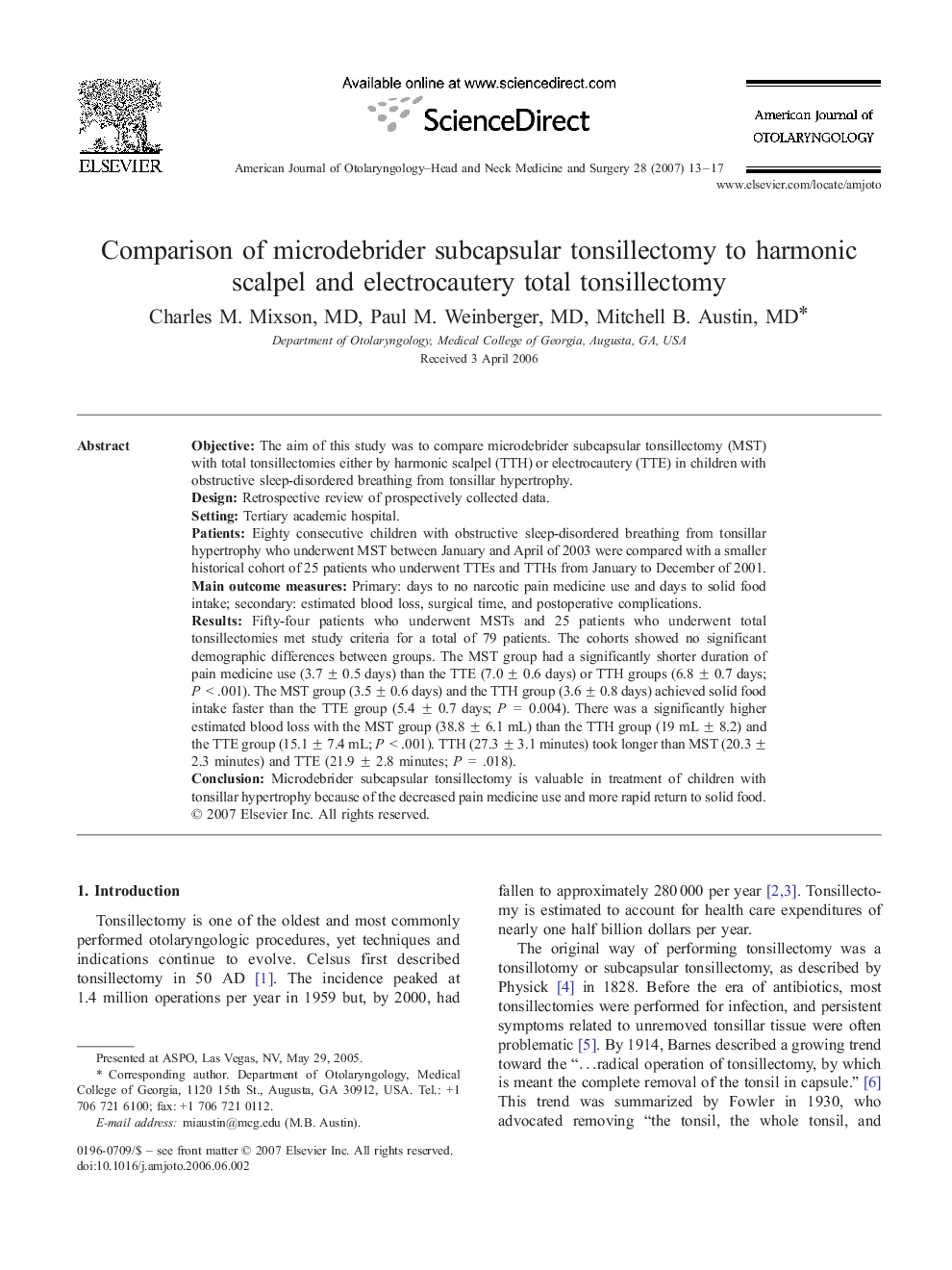| Article ID | Journal | Published Year | Pages | File Type |
|---|---|---|---|---|
| 4104630 | American Journal of Otolaryngology | 2007 | 5 Pages |
ObjectiveThe aim of this study was to compare microdebrider subcapsular tonsillectomy (MST) with total tonsillectomies either by harmonic scalpel (TTH) or electrocautery (TTE) in children with obstructive sleep-disordered breathing from tonsillar hypertrophy.DesignRetrospective review of prospectively collected data.SettingTertiary academic hospital.PatientsEighty consecutive children with obstructive sleep-disordered breathing from tonsillar hypertrophy who underwent MST between January and April of 2003 were compared with a smaller historical cohort of 25 patients who underwent TTEs and TTHs from January to December of 2001.Main outcome measuresPrimary: days to no narcotic pain medicine use and days to solid food intake; secondary: estimated blood loss, surgical time, and postoperative complications.ResultsFifty-four patients who underwent MSTs and 25 patients who underwent total tonsillectomies met study criteria for a total of 79 patients. The cohorts showed no significant demographic differences between groups. The MST group had a significantly shorter duration of pain medicine use (3.7 ± 0.5 days) than the TTE (7.0 ± 0.6 days) or TTH groups (6.8 ± 0.7 days; P < .001). The MST group (3.5 ± 0.6 days) and the TTH group (3.6 ± 0.8 days) achieved solid food intake faster than the TTE group (5.4 ± 0.7 days; P = 0.004). There was a significantly higher estimated blood loss with the MST group (38.8 ± 6.1 mL) than the TTH group (19 mL ± 8.2) and the TTE group (15.1 ± 7.4 mL; P < .001). TTH (27.3 ± 3.1 minutes) took longer than MST (20.3 ± 2.3 minutes) and TTE (21.9 ± 2.8 minutes; P = .018).ConclusionMicrodebrider subcapsular tonsillectomy is valuable in treatment of children with tonsillar hypertrophy because of the decreased pain medicine use and more rapid return to solid food.
